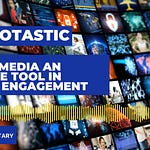Episode Summary
This podcast follows host Miko Santos and his wife as they travel from Adelaide to Perth to attend an Eraserheads concert, a beloved Filipino band. The documentary explores how music helps Filipino immigrants maintain connections to their homeland while building new communities abroad. Through interviews with fans, musicians, and academics, the podcast reveals how songs can transport people emotionally across time and space, creating a sense of "home" regardless of physical location. The story captures how music transcends language barriers, connects generations, and helps immigrants navigate dual cultural identities.
Five Key Takeaways
Filipino expatriates traveled from across Australia (Adelaide, Melbourne, Sydney) and even New Zealand to attend the Eraserheads concert in Perth, demonstrating music's power to mobilize diaspora communities.
Music experts explain that Eraserheads' appeal comes from their innovative melodic structures, harmonic complexity, and distinctly Filipino imagery and scenarios.
The concert created a temporary but powerful community space where strangers became friends through shared cultural experience, what sociologists call a "third space."
Both older Filipinos seeking nostalgia and younger generations discovering their cultural heritage found connection through the music, bridging generational divides.
The documentary positions music as a "portable Philippines" that immigrants carry with them, accessing memories and cultural identity regardless of geographic location.
Detailed Synopsis
"Music as Home: A Filipino Journey" is a 20-minute audio documentary that follows narrator Miko Santos and his wife as they embark on a journey from Adelaide to Perth to attend an Eraserheads concert. The documentary is structured in eight parts, each exploring different dimensions of how music connects Filipino expatriates to their homeland and to each other.
The narrative begins with the anticipation at Adelaide Airport, where the couple notices other Filipinos making the same journey, creating an immediate sense of shared purpose. As they travel, Miko interviews his wife about her first memories of Eraserheads music, establishing the theme of music as a form of "time travel."
In Perth, the documentary expands to include interviews with other concert attendees who have traveled from across Australia and New Zealand. Luigi Costello describes the music as "territory" and "country," suggesting that Eraserheads' songs create a space that feels like home regardless of physical location.
The documentary then deepens through expert analysis. Dominic Laksamana, a composer and music professor, explains the technical brilliance behind Eraserheads' compositions, noting their "curvy" melodic contours and sophisticated chord progressions. Musician and academic Nicky Anasin discusses how music becomes a "tool for us to experience home away from home," helping Filipino expatriates "renegotiate" their identity.
The narrative captures the concert experience itself, where the venue transforms into a space where "Perth could be Manila" and "years fold like origami" into a perfect present-tense moment. The documentary highlights how the event creates connections beyond the music, as strangers exchange phone numbers and make plans for future gatherings.
Throughout the documentary, experts and fans alike compare Eraserheads to The Beatles, though some resist this comparison, asserting the band's unique Filipino identity. The narrative also explores intergenerational connections, featuring a 70-year-old man brought by his grandson and 22-year-old Rosel V. de Guzman, who discovered the band through her parents.
The documentary concludes with Miko's reflection on the return journey, noting how the music now carries additional meaning – not just connecting to the Philippines they left, but to the community they've built in Australia. The final message emphasizes how music creates a space where "there" and "here" can exist simultaneously, where past and present dance together, and where strangers become community through shared melody and memory.
What You'll Learn
Readers will gain insight into the powerful role music plays in immigrant communities, specifically how Filipino expatriates in Australia use Eraserheads' music to maintain cultural connections.
They'll understand how songs create emotional transportation between countries, serving as cultural touchstones that help people navigate dual identities.
The article highlights the formation of community through shared cultural experiences and how music bridges generational gaps.
Readers will also learn about Eraserheads' musical complexity and why they're considered so influential in Filipino culture, offering perspective on how immigrant communities transform cultural elements from their homeland into something that serves their needs in a new country.
CREDITS : This podcast is written and hosted by me, Miko Santos, Produced by Kangaroofern Media Lab, Australia’s Independent podcast management company. Research by ivone Santos, Edited and mixed by Jaime Bada, Sound design by Miguel Bada. Our Podcast producer Renee Bernales. Voice over artist Kiko Malicdem . Music by Epidemic Sound and Eraaserheads . Filipinotastic logo by Sid Tabar.








